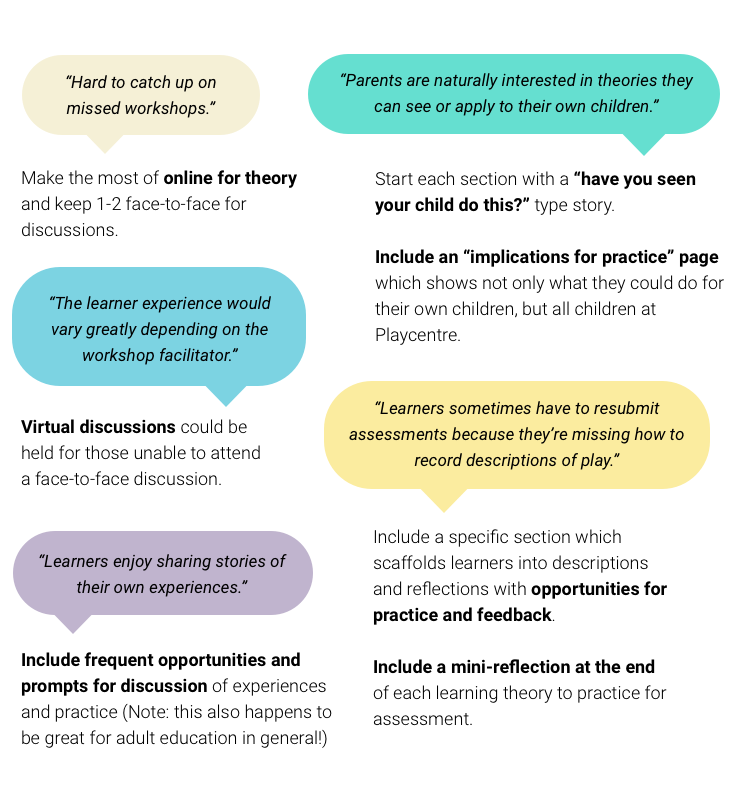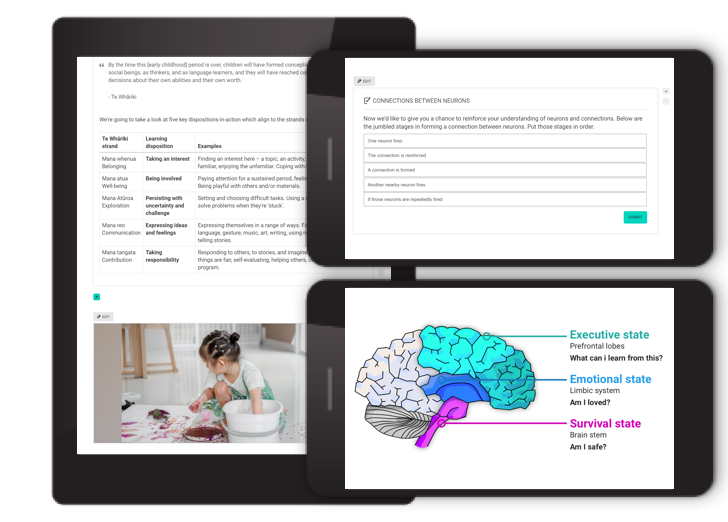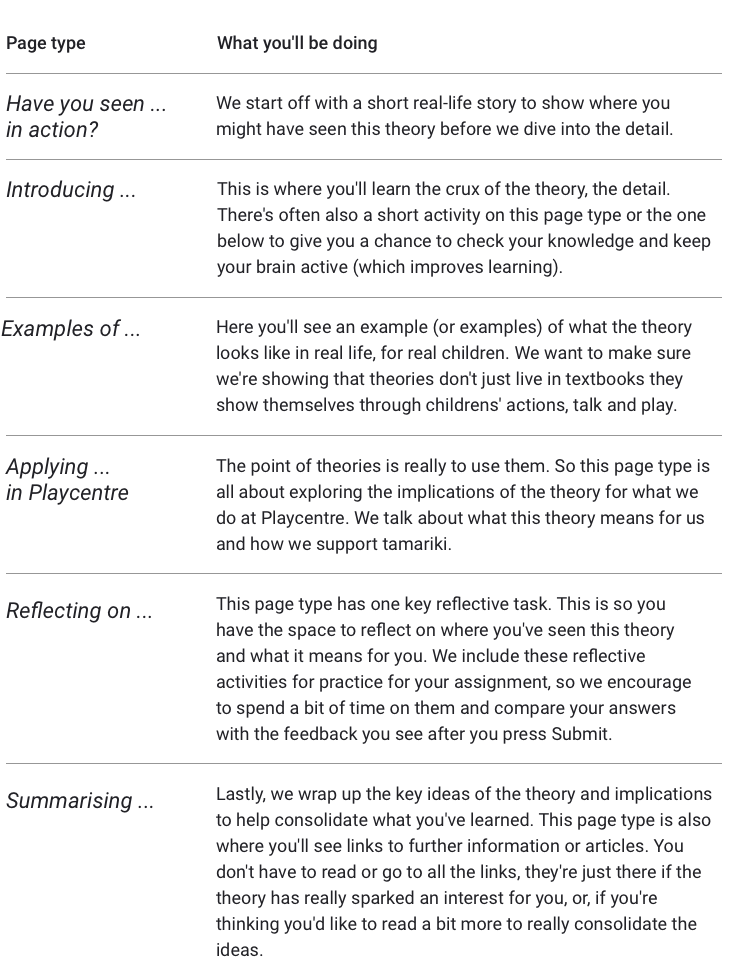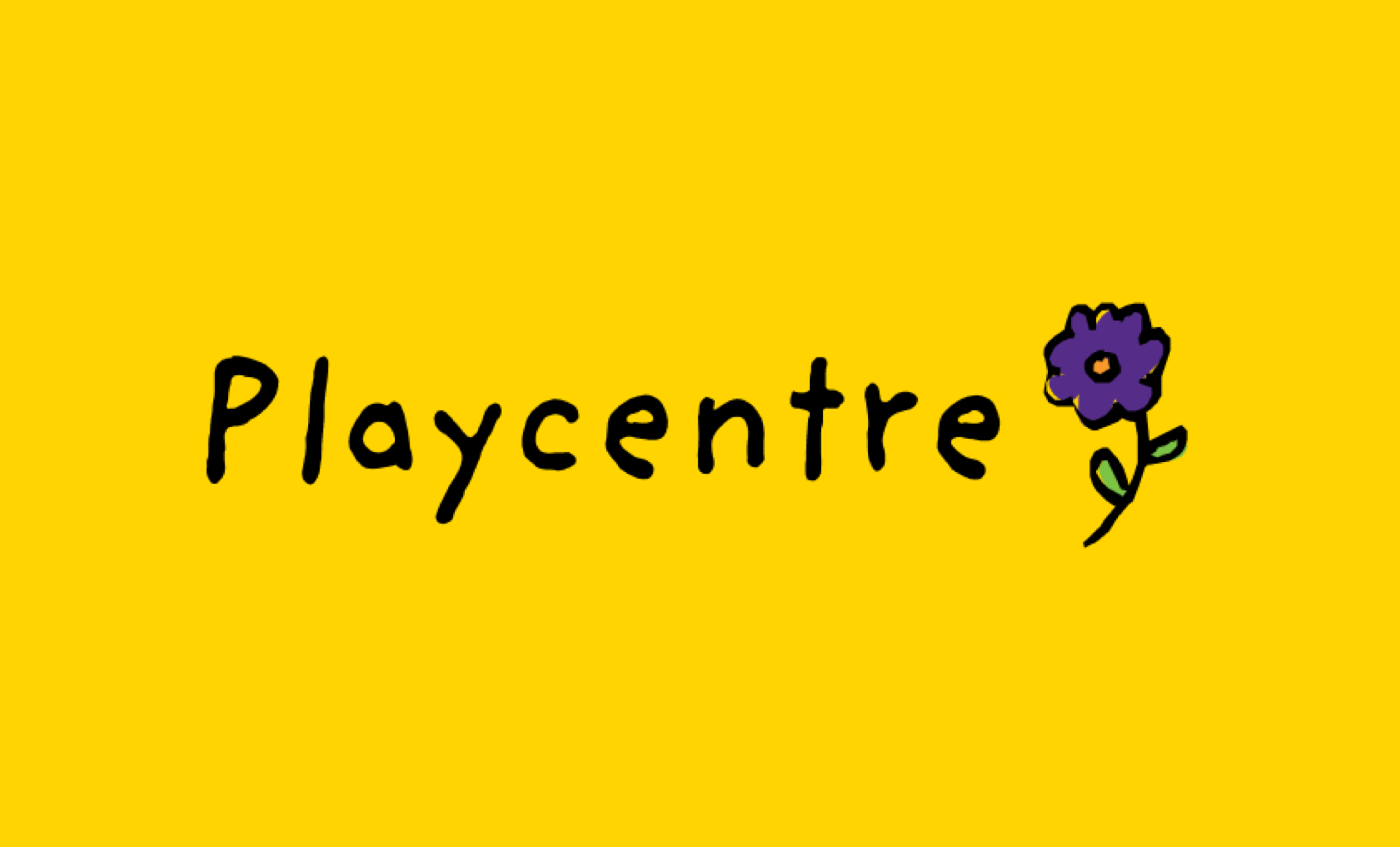An oft-cited barrier to making online learning is the high cost to build an online course. But as Playcentre (a volunteer-based early childhood education group) found out, it doesn’t have to be that way!
Gillian Croad, Training Coordinator for Playcentre worked with iQualify to re-imagine their existing face-to-face workshop model to increase access and decrease time to complete. They kept costs low by making use of existing workshop content, royalty-free images, youtube and vimeo videos and of course, an easy-to-use authoring tool - iQualify.
“The whole field of online study was new to us and the support available from iQualify to create and run a course was exceptional. They helped us to scaffold our content so that we don’t have to rely on ‘experts’ to do everything for us. As a non-for profit we need to make our money go a long way and iQualify is a really sustainable and affordable solution.”
The existing model
Playcentre runs parent-led early childhood education centres throughout New Zealand and offers parents the opportunity to gain a Diploma in Early Childhood and Adult Education. One of their modules is about key learning and development theories and is a pre-requisite for all other modules.
Prior to going online, Playcentre were offering this module as a series of eight workshops (2+ hours each) run in evenings and weekends. Workshop facilitators had to travel and learners had to find time (and childcare) to get to the scheduled workshops. The workshops consisted of slides with key points, links to videos (which they might watch as a group) and discussion prompts. The workshops were supplemented with a “student resource” which had explanations of the theories and a collection of journal articles to support and further explain theories.
The method
We met with Gillian to plan. When you’re redesigning for online, you don’t want to throw the baby out with the bath water! So our planning always includes questions about what’s working well as well as what’s not. That way we can bring along or build on what’s already working. We asked things like:
- What would your biggest advocate say about what you currently do?
- What would your biggest critic say about what you currently do?
- What do you think are your learners’ biggest strengths that we could build on?
- What do you think interests your learners most that we could leverage/use to engage?
If you’d like to know more about the sorts of questions you can ask going into planning and design, check out Course planning - Define the "flavour" of your course.
For playcentre, we found that learners loved the chance to learn about things that helped them with their own children (and of course we had the common experience of all learners having children to build on).
Gillian also told us that while learners love the chance to come together to share stories and practice they find it difficult to find time for the scheduled workshops. This resulted in learners often having to wait a month or more for the right session to be available in their region.
The new model
From planning, we came up with these thoughts for a new model:


You’ll see some of the suggestions above include a consistent way of starting and ending the way we teach a theory. We decided to come up with a consistent “learning pattern” that we could use for each of the theories we look at. This means learners know what to expect and get a streamlined experience. Here’s how we explained it to learners:

As learners progressed through the modules they also had short activities to complete as a chance to check they were on the right track as well as discussion activities as a chance for learners to connect with and learn from others and their experiences.
At the start of the project we thought we would send out a video crew to record examples of children’s play and educator’s reflections on this. But as we progressed, we found a whole host of existing videos so we decided to lean on those for the first iteration of the courses. This means we can save development costs for now, then after learner feedback we can see where an investment in video would be best spent (saving time and money overall).
Gillian is delighted with the project so far and the benefit it will have for playcentre parents.
“For years we’ve had the request to have some of the programme online so our students can study from home at their own pace. The new programme provides for study in short blocks of learning and will allow our students to fit these around their family and other commitments which is fantastic.”
We’re excited to see what learners think of the new online courses, stay tuned for an update after the first intake!
Find out more
If you’re parent interested in Playcentre and what they offer, check out their website.
If you’re interested in iQualify and how it could transform your business check out www.iqualify.com


